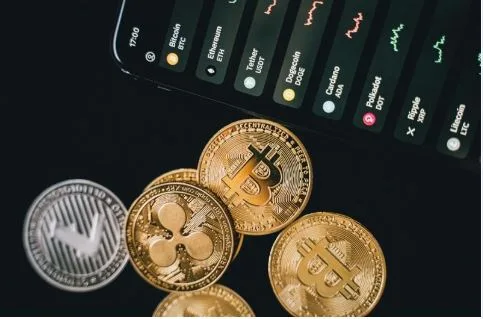How Jujutsu Kaisen Built a New Era of Shonen Storytelling
In the ever-evolving landscape of Japanese animation, Jujutsu Kaisen stands as a transformative force that has fundamentally reshaped the boundaries of shonen storytelling.
Since its anime debut in 2020, the series has masterfully deconstructed traditional genre conventions while introducing a sophisticated narrative framework that resonates with modern audiences.
Created by Gege Akutami, this dark fantasy series doesn’t merely tell a story of sorcerers battling curses; it weaves a complex tapestry of human nature, mortality, and the price of power.
Through its intricate power system, morally ambiguous characters, and unflinching portrayal of consequences, Jujutsu Kaisen has established itself as a watershed moment in anime history, marking the evolution from traditional shonen tropes to a more nuanced and psychologically rich form of storytelling.
Breaking the Traditional Shonen Formula
Jujutsu Kaisen (JJK) emerged as a revolutionary force in the shonen landscape, distinctly separating itself from its predecessors through bold narrative choices and complex thematic elements.
Unlike traditional shonen series that often follow predictable hero’s journey templates, JJK subverts expectations by presenting a world where victory comes at devastating costs and moral absolutes rarely exist.
The series’ protagonist, Yuji Itadori, exemplifies this departure from convention. Rather than embodying the typical shonen hero’s unwavering optimism, Yuji grapples with the psychological burden of hosting Sukuna, the King of Curses.
His initial goal of “helping people” evolves into a complex meditation on what constitutes a “proper death” and the true meaning of sacrifice.
The traditional shonen power scaling system is likewise reconstructed in JJK. Instead of linear power-ups, characters like Megumi Fushiguro and Nobara Kugisaki develop abilities that reflect their psychological states and personal philosophies.
The power system itself, based on Cursed Energy, serves as a mirror to human negativity rather than a simple measure of combat prowess.
The Emotional Complexity of JJK Characters
The series stands apart through its sophisticated approach to character development. Satoru Gojo, while initially appearing to fit the overpowered mentor archetype, reveals layers of complexity through his relationships with students and his tragic history with Suguru Geto.
Their friendship-turned-rivalry explores themes of ideological divergence and the burden of exceptional talent.
JJK characters demonstrate remarkable emotional depth through their responses to trauma and loss. Nobara Kugisaki challenges gender stereotypes in shonen by maintaining her feminine identity while displaying fierce combat prowess. Her character arc emphasises personal authenticity over conventional character development tropes.
Similarly, Toge Inumaki, whose Cursed Speech technique forces him into near-constant silence, represents a unique exploration of power’s double-edged nature and the sacrifices inherent in wielding great abilities.
The relationship between Megumi Fushiguro and Yuji exemplifies the series’ nuanced approach to friendship. Unlike traditional shonen partnerships built on shared dreams, their bond develops through mutual understanding of life’s inherent unfairness and their different approaches to confronting it.
Dark Themes and Cursed Energy as a Reflection of Humanity
The concept of Cursed Energy in Jujutsu Kaisen serves as a sophisticated metaphor for human negativity. Unlike simple power systems, Cursed Energy manifests from negative emotions, fear, and regret — elements that traditional shonen series often gloss over.
This connection between power and psychological state creates a unique narrative where character development directly influences combat ability.
The series explores how Cursed Spirits emerge from humanity’s collective negative emotions, creating a power system that directly reflects societal issues.
Through the detailed profiles of every JJK character, it becomes clear how each curse and sorcerer embodies a distinct fragment of human emotion Mahito representing hatred and transformation, Jogo symbolising primal fear and environmental despair.
Redefining the Future of Shonen Anime
Jujutsu Kaisen’s influence on modern anime extends beyond its immediate success. The series has established new benchmarks for storytelling complexity and animation quality through studio MAPPA‘s exceptional adaptation.
Its impact is evident in how newer shonen series approach themes of mortality, power dynamics, and character development.
The series’ success demonstrates the audience’s growing appetite for mature storytelling within the shonen genre. Story arcs like the Shibuya Incident prove that mainstream anime can balance spectacular action with genuine consequences and emotional depth.
This shift has encouraged other creators to explore darker themes and more complex narrative structures.The fusion of traditional Japanese folklore with modern sensibilities has created a unique aesthetic that influences contemporary manga and anime.
Elements like Domain Expansion and Cursed Techniques have redefined how supernatural powers are portrayed in media, emphasising personal interpretation and psychological significance over raw power levels.
Frequently Asked Questions
Is Jujutsu Kaisen finished?
The manga is currently ongoing, written and illustrated by Gege Akutami. The series continues to release new chapters regularly in Weekly Shōnen Jump, with the story currently in its final saga. The anime adaptation has completed two seasons, with several significant arcs yet to be animated.
How to make Jujutsu Kaisen in Infinite Craft?
While Infinite Craft is a popular game for creating elements, there isn’t a specific official recipe for creating Jujutsu Kaisen. Players typically experiment with combinations of elements like magic, curse, Japan and martial arts to create related concepts.
When is Jujutsu Kaisen Season 3 coming?
While MAPPA has not officially announced a release date for Season 3, production is expected to begin following the conclusion of Season 2. The third season will likely adapt the highly anticipated Culling Game arc, though fans should wait for official announcements for concrete details.
Who is the main character in Jujutsu Kaisen?
Yuji Itadori serves as the primary protagonist of Jujutsu Kaisen. After consuming Sukuna’s finger to save his friends, he becomes a vessel for the King of Curses and enrolls at Tokyo Jujutsu High. However, the series features an ensemble cast with significant focus on characters like Megumi Fushiguro, Nobara Kugisaki, and Satoru Gojo.
Who is the strongest character in Jujutsu Kaisen?
The title of strongest character is contested between Satoru Gojo and Ryomen Sukuna. Gojo is often referred to as “the strongest jujutsu sorcerer” with his Limitless technique and Six Eyes, while Sukuna, as the King of Curses, demonstrates unprecedented power levels, particularly during the Shibuya Incident arc.
Conclusion
Jujutsu Kaisen has redefined shonen storytelling by seamlessly blending traditional genre elements with sophisticated narrative techniques and psychological depth. Its success proves that audiences are ready for more complex, emotionally resonant stories within the shonen framework.
As the series continues to evolve, its influence on the anime industry and storytelling conventions will likely expand further, setting new standards for future generations of manga and anime creators.
The series stands as a testament to how modern shonen can balance spectacular action sequences with meaningful character development and thematic depth.
Through its dark fantasy lens, Jujutsu Kaisen explores universal themes of mortality, sacrifice, and the complex nature of human emotions, ensuring its place as a landmark title in anime history.




